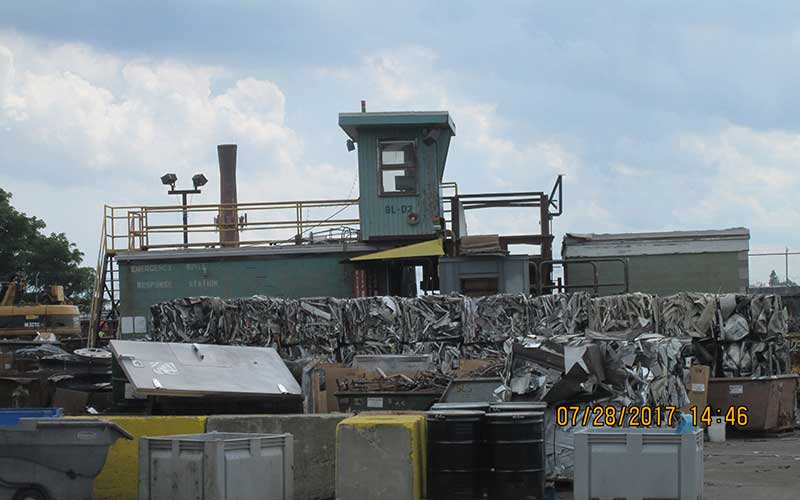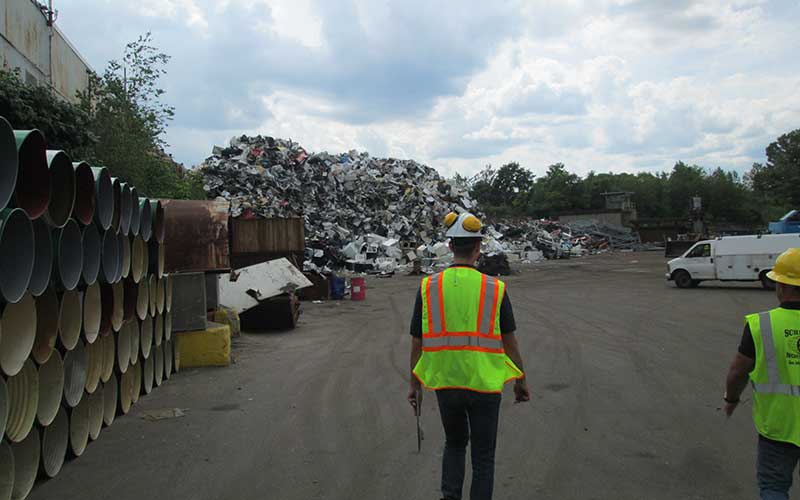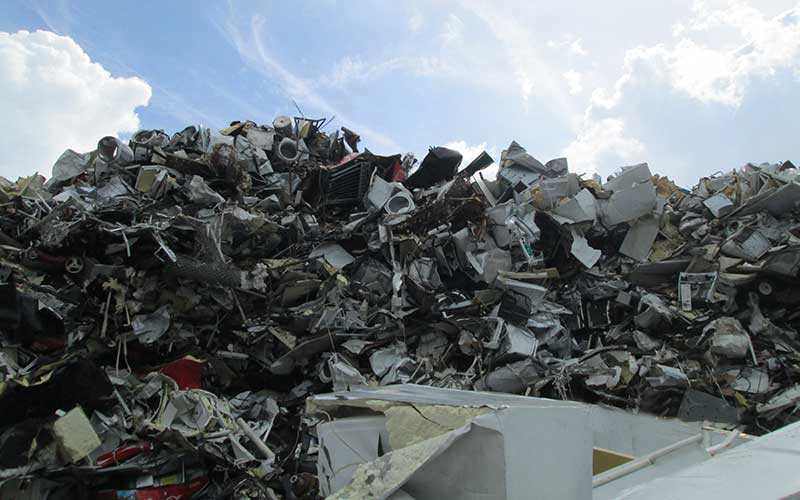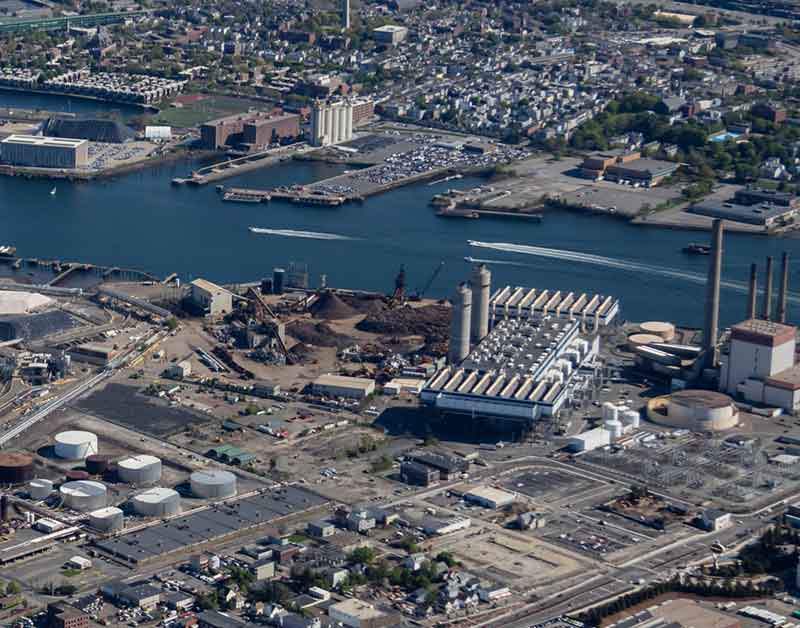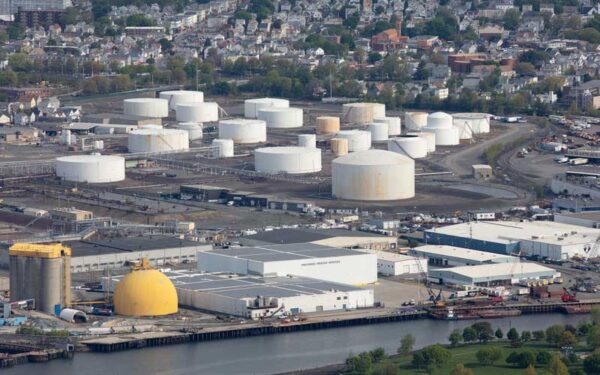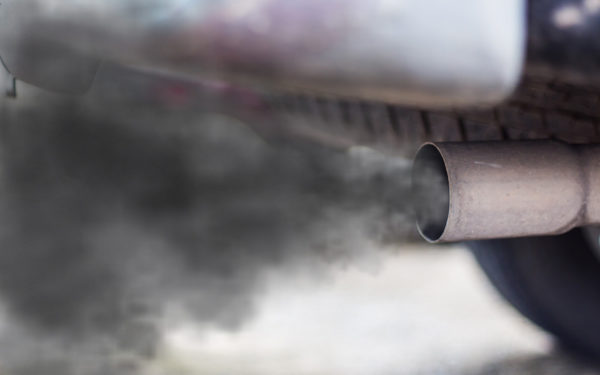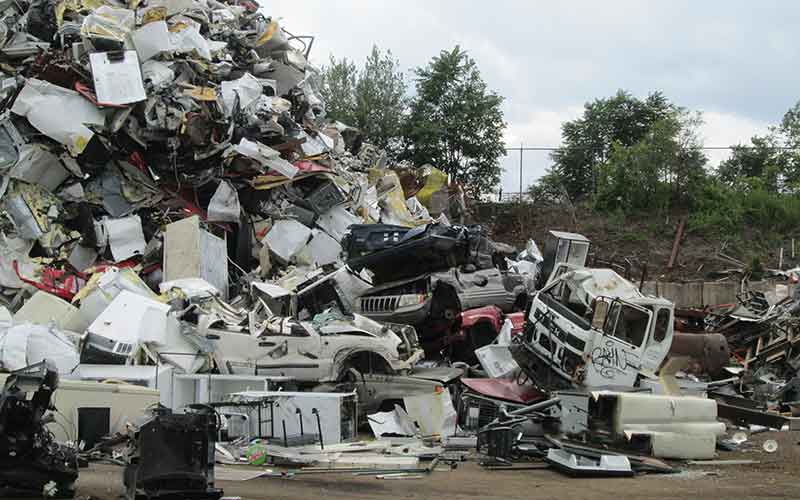
Schnitzer Steel's scrap metal facilities dump toxic pollution into waterways from Massachusetts to Puerto Rico.
New England’s rivers powered the Industrial Revolution. But with industry came pollution and industrial waste. As recently as the 1970s, pollution from upstream mills would dye the Merrimack River the color of the fabric produced that day. In 1990, the EPA deemed the Blackstone River, which powered the nation’s first textile mill, the most polluted river in the country for toxic sediments.
The Blackstone, Mystic, and Merrimack rivers have come a long way since their industrial past. But we must stay vigilant to preserve and build on these gains.
New England’s industrial rivers are starting to turn a new page thanks to the Clean Water Act. We’ve seen exciting improvements for the Blackstone, Mystic, and Merrimack rivers over the last 50 years. Bald eagles have returned to the banks of the Merrimack River after being absent for over a century. The herring population has dramatically increased in the Mystic River. And the Blackstone River Valley National Historical Park, created in 2014, attracts thousands of visitors annually to celebrate the waterway’s historical significance and natural beauty.
But more work needs to be done. The Blackstone River still suffers from industrial pollution, including lead, iron, oil, grease, and foam. The Mystic River also endures harmful levels of oil, grease, foam, and petroleum pollution, while aluminum contaminates the Merrimack River.
CLF is stepping up to protect the Blackstone, the Mystic, and the Merrimack rivers from industrial pollution.
One of the industrial polluters still harming our iconic waters is Schnitzer Steel. Schnitzer stores and processes towering piles of uncovered metal, broken appliances, and other industrial wastes – all within a stone’s throw of these beloved rivers. When it rains, the rainwater flows through the piles, picking up and carrying away small pieces of metal and industrial waste. The polluted stormwater that does not seep into the ground is collected by Schnitzer and then piped into the nearest waterway.
Schnitzer’s own reporting verifies that their facilities add dangerous amounts of heavy metals, including lead, to the Blackstone, Mystic, and Merrimack rivers. In some cases, the company discharges amounts 400 times higher than what is safe for people and wildlife.
A river is no place for heavy metal pollution – especially a river like the Merrimack that provides drinking water to 600,000 people. Heavy metals like lead, zinc, and copper can harm human health and devastate aquatic communities.
And lead is particularly scary. Consuming even small amounts of lead can be dangerous – especially to young children. Lead can cause a wide range of severe health consequences, including to the brain, heart, lungs, and reproductive system. Controlling industrial and heavy metal pollution is necessary for safe, healthy drinking water.
CLF is putting Schnitzer Steel on notice that it must clean up its operations.
We cannot allow Schnitzer Steel to continue polluting our precious waterways unabated. That’s why we are suing the company for violating the Clean Water Act. Schnitzer operates facilities across the country, but our lawsuits focus on the ten of the worst offenders. These include scrap metal yards in Attleboro, Everett, and Worcester, Massachusetts, and Concord and Manchester, New Hampshire. CLF is also suing Schnitzer for its violations at four facilities in Puerto Rico: in Bayamón, Canovanas, Caguas, and Ponce.
Schnitzer is piling on to the already disproportionate pollution burden shouldered by the neighborhoods surrounding its Massachusetts and Puerto Rico facilities. These neighborhoods include communities of color, low-income communities, and communities of non-English speakers who have been marginalized historically.
The health of our communities depends on clean rivers and responsible industries.
We all have a right to clean water that is fishable, swimmable, and drinkable. When polluters break the law, they endanger our health.
We have a long way to go before these rivers are restored to the high water quality that their communities deserve. The Blackstone River is still not safe for swimming, and the lower Mystic and the Merrimack rivers have advisories warning children and pregnant women not to consume fish caught in their waters.
But we can only achieve our clean water goals if industrial polluters like Schnitzer control their pollution and comply with the law.
To enforce the Clean Water Act, CLF relies on members like you for support.
Bringing an enforcement lawsuit like this demands significant time and resources. We’ve been building our case against Schnitzer since July of 2021. And lawsuits can take years to resolve. CLF’s constituents and donors give us the ability to bring these cases to protect our waters.

